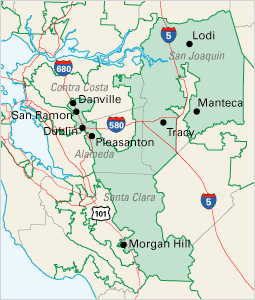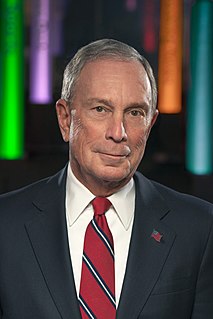
Proposition 22 was a law enacted by California voters in March 2000 to prevent marriage between same-sex couples. In May 2008, it was struck down by the California Supreme Court as contrary to the state constitution.

Proposition 62 was a California ballot proposition on the November 2, 2004 ballot. It failed to pass with 5,119,155 (46.1%) votes in favor and 5,968,770 (53.9%) against.
Don Richard Perata is a California Democratic politician, who was President pro tempore of the California State Senate from 2004 to 2008. He came in second place in the November 2010 ballot for Mayor of Oakland. Perata now runs a political consultancy company

Proposition 74 (2005) was a ballot proposition in the 2005 California special election that intended to extend probationary periods for the state's public school teachers from two years to five before attaining tenure. It failed at the polls, with 55% of voters rejecting it.

The 2005 United States elections were held on Tuesday, November 8. During this off-year election, the only seats up for election in the United States Congress were special elections held throughout the year. None of these congressional seats changed party hands. There were also two gubernatorial races, state legislative elections in two states, numerous citizen initiatives, mayoral races in several major cities, and a variety of local offices on the ballot.

California is the most populous U.S. state and as a result has the most representation in the United States House of Representatives, with 53 Representatives. Each Representative represents one congressional district.

Arnold Schwarzenegger is an actor and former bodybuilder who served as Governor of California from November 2003 to January 2011. He was first elected in the 2003 recall election and won re-election in 2006. He previously held non-elected appointments by President George H.W. Bush to the President's Council on Physical Fitness and Sports, in which he served from 1990 to 1998 and was chairman of California Governor's Council on Physical Fitness and Sports under Governor Pete Wilson.

Electoral reform in California refers to efforts to change election and voting laws in the West Coast state of California.

Proposition 4, or the Abortion Waiting Period and Parental Notification Initiative, also known to its supporters as Sarah's Law, was an initiative state constitutional amendment on the 2008 California General Election ballot

Proposition 8, known informally as Prop 8, was a California ballot proposition and a state constitutional amendment passed in the November 2008 California state elections. The proposition was created by opponents of same-sex marriage in advance of the California Supreme Court's May 2008 appeal ruling, In re Marriage Cases, which followed the short-lived 2004 same-sex weddings controversy and found the previous ban on same-sex marriage unconstitutional. Proposition 8 was ultimately ruled unconstitutional by a federal court in 2010, although the court decision did not go into effect until June 26, 2013, following the conclusion of proponents' appeals.

Arizona Proposition 102 was an amendment to the constitution of the state of Arizona adopted by a ballot measure held in 2008. It added Article 30 of the Arizona Constitution, which says: "Only a union of one man and one woman shall be valid or recognized as a marriage in this state." The amendment added a constitutional ban on same-sex marriage to existing statutory bans in place since 1996. In October 2014, Article 30 of the Arizona Constitution was struck down as unconstitutional in the United States District Court for the District of Arizona, and is no longer enforced by the state of Arizona, which now allows and recognizes same-sex marriages.

Proposition 3 is a law that was enacted by California voters by means of the initiative process. It is a bond issue that authorizes $980 million in bonds, to be repaid from state’s General Fund, to fund the construction, expansion, remodeling, renovation, furnishing and equipping of children’s hospitals. The annual payment on the debt authorized by the initiative is approximately $64 million a year. Altogether, the measure would cost about $1.9 billion over 30 years out of California's general fund.

California Proposition 7, would have required California utilities to procure half of their power from renewable resources by 2025. In order to make that goal, levels of production of solar, wind and other renewable energy resources would more than quadruple from their current output of 10.9%. It would also require California utilities to increase their purchase of electricity generated from renewable resources by 2% annually to meet Renewable Portfolio Standard (RPS) requirements of 40% in 2020 and 50% in 2025. Current law AB32 requires an RPS of 20% by 2010.

The California state elections, November 2010 were held on November 2, 2010.

Proposition 23 was a California ballot proposition that was on the November 2, 2010 California statewide ballot. It was defeated by California voters during the statewide election by a 23% margin. If passed, it would have suspended AB 32, a law enacted in 2006, legally referred to its long name, the Global Warming Solutions Act of 2006. Sponsors of the initiative referred to their measure as the California Jobs Initiative while opponents called it the Dirty Energy Prop.

A California Congressional Redistricting Initiative, Proposition 20 was on the November 2, 2010 ballot in California. It was approved by 61.2% of voters. Election officials announced on May 5 that the proposition had collected sufficient signatures to qualify for the ballot. The measure is known by its supporters as the VOTERS FIRST Act for Congress.

Proposition 27 was an unsuccessful ballot proposition on the November 2, 2010 ballot in California, placed there by the initiative process. If approved, this measure would have repealed California Proposition 11 (2008), which authorized the creation of the California Citizens Redistricting Commission to draw the electoral boundaries for State Assembly and State Senate districts. It would also have modified the provision in California law that says that proposed congressional districts can't be subjected to a veto referendum.

The California state elections was held on Election Day, November 6, 2012. On the ballot were eleven propositions, various parties' nominees for the United States presidency, the Class I Senator to the United States Senate, all of California's seats to the House of Representatives, all of the seats of the State Assembly, and all odd-numbered seats of the State Senate.

Redistricting in California has historically been highly controversial. Critics have accused legislators of attempting to protect themselves from competition by gerrymandering districts. Conflicts between the governor and the legislature during redistricting often have only been resolved by the courts.

California Proposition 6 was a measure that was submitted to California voters as part of the November 2018 election. The ballot measure proposed a repeal of the Road Repair and Accountability Act, which is also known as Senate Bill 1. The measure failed with about 57% of the voters against and 43% in favor.





















